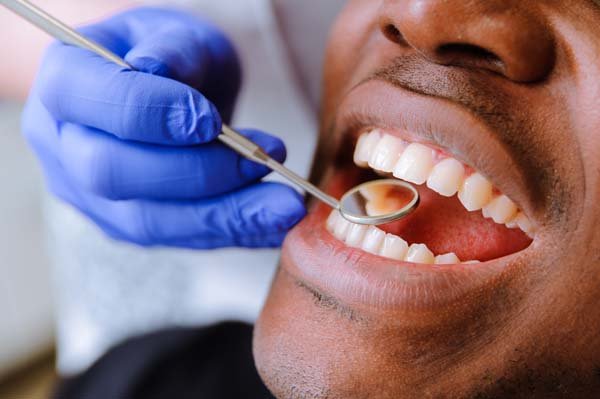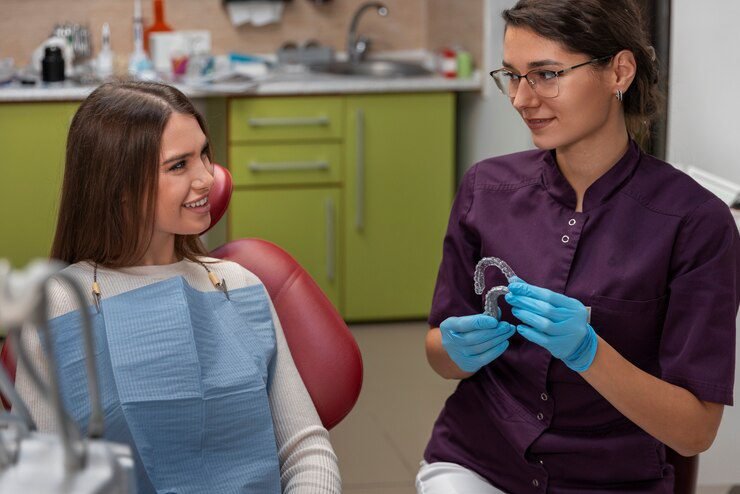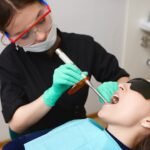Table of Contents
Importance of Finding the Right Dentist for Your Oral Health
When it comes to your oral health, finding the right dentist is of utmost importance. Your dentist plays a crucial role in maintaining and improving your dental well-being, and choosing the right one can have a significant impact on the overall quality of your dental care.
A skilled and knowledgeable dentist will not only provide you with the necessary treatments and procedures but also offer guidance and advice on maintaining good oral hygiene. Regular check-ups and cleanings can prevent the development of serious dental issues, and a competent dentist will ensure that any potential problems are identified and addressed early on. By establishing a long-term relationship with your dentist, you can receive personalized and comprehensive care tailored to your specific needs, ensuring the best possible outcomes for your oral health.


Assessing Your Personal Dental Needs and Goals
Assessing your personal dental needs and goals is an important step in finding the right dentist for your oral health. Everyone’s dental needs and goals are unique, so it is crucial to evaluate your specific situation before making a decision.
The first aspect to consider is your current oral health. Are you experiencing any dental issues or pain? Do you have any existing dental conditions that require special attention? Assessing your oral health will help determine if you need a general dentist or a specialist in a particular field.
Additionally, think about your long-term dental goals. Are you looking for preventative care to maintain good oral health? Are you interested in cosmetic dentistry to enhance your smile? By understanding your goals, you can seek out a dentist whose expertise aligns with your needs.
Remember, finding the right dentist for your oral health starts with assessing your personal dental needs and goals. Take the time to evaluate your oral health and determine what you want to achieve in the long run. This initial step will help guide you in finding the dentist who can provide the best care and support for your dental journey.
Researching Dentists in Your Area
When researching dentists in your area, it is important to consider multiple factors to ensure you find the right dental professional for your oral health needs. Begin by obtaining a list of dentists in your area through online searches, directories, or recommendations from friends and family. Once you have a list, take the time to visit each dentist’s website and review their qualifications, credentials, and areas of expertise. This information can give you a good sense of their education and training, as well as any specialized knowledge they may have.
In addition to qualifications, it is also worth considering a dentist’s experience and track record. Look for information on how long they have been practicing, any professional organizations they belong to, and whether they have received any awards or accolades. Patient testimonials and online reviews can also offer valuable insights into the dentist’s approach to patient care and overall satisfaction levels. By taking the time to thoroughly research dentists in your area, you can make a well-informed decision and establish a long-term relationship with a trusted oral health provider.


Evaluating Dentist Qualifications and Credentials
When evaluating dentist qualifications and credentials, it is essential to ensure that the dentist has obtained the necessary education and training to provide quality dental care. This includes completing a degree from an accredited dental school and obtaining the appropriate licensure. Additionally, dentists may pursue advanced certifications or attend continuing education courses to expand their knowledge and stay up-to-date with the latest advancements in dental techniques and treatments.
It is also important to consider any specialized training or areas of expertise that the dentist may have. For example, if you have specific dental needs such as orthodontics or pediatric dentistry, you may want to seek out a dentist who has received additional training and experience in those areas. This can help ensure that you receive the specialized care you require.
By thoroughly evaluating a dentist’s qualifications and credentials, you can make an informed decision about whether they possess the necessary skills and knowledge to provide the dental care you need. It is recommended to inquire about their education, licensure, certifications, and any specialized training or expertise they may have. This will help you feel confident in your choice of dentist and establish a long-term relationship based on trust and quality care.
Seeking Recommendations from Trusted Sources
When it comes to finding a trustworthy and skilled dentist, seeking recommendations from trusted sources is an essential step. One of the best sources of recommendations is your friends and family members who have had positive experiences with their own dentists. They can provide firsthand insights into the dentist’s expertise, the quality of care provided, and the overall experience of being a patient. Additionally, you can consult your primary healthcare provider for recommendations as they often have a network of trusted dental professionals to refer their patients to.
Another valuable source of recommendations is online platforms dedicated to healthcare reviews. Websites such as Healthgrades or Yelp allow patients to share their experiences and rate dentists based on various criteria, including professionalism, communication, and the quality of treatment received. Reading these reviews can give you a broad understanding of what to expect from a particular dentist and help you make an informed decision. However, it’s important to consider both positive and negative reviews, as individual experiences can vary.
By seeking recommendations from trusted sources, you can gain valuable insights into the dental professionals in your area and narrow down your choices. However, it’s important to remember that recommendations alone should not be the sole basis for your decision. It is crucial to conduct a thorough evaluation of other aspects, such as qualifications, experience, and approach to patient care, to ensure that you find the right dentist for your oral health needs.


Checking for Dentist Specializations and Expertise
When searching for a dentist, one important factor to consider is their specializations and expertise. Dentistry is a vast field with various branches, and dentists often choose to specialize in a particular area to provide specialized care to their patients. Specializations can range from orthodontics and cosmetic dentistry to periodontics and pediatric dentistry.
By choosing a dentist who specializes in the specific dental treatments or procedures you require, you can ensure that you receive the highest quality of care. Specialized dentists have undergone additional training and education in their chosen field, equipping them with the knowledge and skills to effectively diagnose and treat complex oral health issues. Whether you need braces for misaligned teeth, dental implants for missing teeth, or specialized care for your child’s oral health, finding a dentist with the relevant specializations and expertise is crucial to achieving the best possible outcome.
Considering the Dentist’s Experience and Track Record
The experience and track record of a dentist can be crucial factors to consider when choosing the right oral healthcare professional for your needs. A dentist with years of experience under their belt has likely encountered a wide range of dental issues and has gained valuable skills and expertise in dealing with them.
A dentist’s track record speaks volumes about their ability to deliver quality care. By reviewing their track record, you can gain insight into their success rates, patient satisfaction levels, and the overall effectiveness of their treatments. This information can provide reassurance and confidence in their abilities to address your specific dental concerns.
When considering experience and track record, it is important to look for dentists who have a proven history of achieving positive outcomes and who continuously stay up-to-date with the latest advancements in dental techniques and technologies. This commitment to ongoing education and professional development ensures that they can provide you with the best and most effective treatment options available.
By carefully assessing a dentist’s experience and track record, you can make an informed decision and establish a long-lasting relationship with a trustworthy oral healthcare provider who consistently delivers exceptional dental care. Remember to consider other relevant factors alongside experience and track record to ensure you find the dentist who is the perfect fit for you.
Certainly! Below is an example of how you could represent a dentist’s experience and track record in a tabular form:
| Dentist’s Name | Years of Experience | Specializations | Patient Satisfaction Rate (%) | Number of Procedures Performed |
|---|---|---|---|---|
| Dr. John Smith | 15 | Orthodontics, General Dentistry | 95 | 5000 |
| Dr. Emily Johnson | 10 | Pediatric Dentistry, Cosmetic Dentistry | 98 | 3000 |
| Dr. Michael Lee | 20 | Oral Surgery, Implantology | 90 | 7000 |
| Dr. Sarah Patel | 5 | Endodontics, Periodontics | 92 | 2000 |
Assessing the Dental Practice’s Location and Accessibility
When assessing the location and accessibility of a dental practice, there are several key factors to consider. Firstly, the proximity of the practice to your home or workplace can greatly impact your ability to schedule appointments conveniently. Opting for a dentist that is within a reasonable distance can save you time, money, and effort in travelling to and from appointments.
Additionally, it is important to evaluate the accessibility of the practice, especially if you have any mobility challenges or require accommodations. Pay attention to factors such as wheelchair ramps, elevators, parking facilities, and any other amenities that can enhance the overall accessibility of the dental practice. By choosing a conveniently located and accessible practice, you can ensure that attending appointments is a comfortable and hassle-free experience.
Examining the Dental Practice’s Facilities and Technology
When examining the dental practice’s facilities and technology, it is important to consider how these aspects can impact your overall experience as a patient. The facilities should be clean, organized, and well-maintained, creating a comfortable and welcoming environment. A modern and up-to-date dental practice will likely have state-of-the-art technology and equipment that can enhance the quality and effectiveness of your treatment. This can include digital x-ray machines, intraoral cameras, and advanced dental software systems. These technological advancements not only provide a more accurate diagnosis but also allow for more precise and efficient treatment options. By prioritizing a dental practice that invests in their facilities and technology, you can ensure that you are receiving the highest standard of care for your oral health needs.
| Facility/Technology | Description |
|---|---|
| Digital X-ray Machines | State-of-the-art machines for capturing digital X-ray images, reducing radiation exposure and providing clearer images for diagnostics. |
| Intraoral Cameras | Cameras used to capture images inside the mouth, aiding in patient education and treatment planning. |
| Sterilization Equipment | High-quality sterilizers for ensuring the cleanliness and safety of dental instruments and equipment. |
| Electronic Health Records (EHR) System | Digital system for maintaining patient records securely and efficiently. Allows for easy access to patient history, treatment plans, and notes. |
| Cone Beam Computed Tomography (CBCT) | Advanced imaging technology for generating detailed 3D images of the teeth, jaw, and surrounding structures, useful for complex procedures like dental implants and orthodontic treatment planning. |
| Digital Impressions System | Replaces traditional putty impressions with digital scans for creating precise models of patients’ teeth and gums. |
| Dental CAD/CAM System | Computer-aided design/computer-aided manufacturing system for fabricating dental restorations like crowns, bridges, and veneers in-house. |
| Sedation Dentistry Options | Various sedation techniques available to help patients relax during dental procedures, including nitrous oxide (laughing gas), oral sedatives, and IV sedation. |
| Telemedicine Capabilities | Allows for remote consultations and follow-ups, enhancing accessibility and convenience for patients. |
| Advanced Surgical Equipment | High-quality instruments and tools for performing complex oral surgeries with precision and minimal invasiveness. |
| Eco-Friendly Practices | Implementation of environmentally friendly practices such as digital record-keeping, paperless billing, and energy-efficient equipment to reduce the practice’s carbon footprint. |
Evaluating the Dentist’s Approach to Patient Care and Communication
When evaluating a dentist’s approach to patient care and communication, there are several key factors to consider. Firstly, it is important to assess the dentist’s ability to listen to and address the concerns of their patients. Effective communication involves not only speaking clearly and concisely, but also actively listening to patients’ questions and providing thoughtful and informative responses. A dentist who takes the time to understand their patients’ needs and educates them about their oral health can instill trust and confidence in their patients.
In addition to effective communication, a dentist’s approach to patient care should prioritize individualized treatment plans. Each patient has unique dental needs and goals, and a dentist who tailors their approach accordingly can provide the best possible care. This may involve discussing different treatment options with patients, explaining the pros and cons of each, and helping patients make informed decisions about their oral health. A dentist who values patient autonomy and involvement in the decision-making process demonstrates a patient-centered approach to care. Ultimately, finding a dentist who prioritizes effective communication and individualized care can significantly contribute to a positive dental experience and optimal oral health outcomes.
Reviewing Patient Testimonials and Online Reviews
When it comes to finding the right dentist for your oral health, reviewing patient testimonials and online reviews can be an invaluable tool. These testimonials and reviews provide insights into the experiences of other patients, giving you a glimpse into the dentist’s quality of care and patient satisfaction.
Patient testimonials offer firsthand accounts of individuals who have received treatment from the dentist you are considering. They provide details about the dentist’s professionalism, communication skills, and the overall atmosphere of the dental practice. Reading these testimonials can help you gauge whether the dentist and their team will be a good fit for you and your oral health needs.
Online reviews, on the other hand, offer a broader perspective as they come from various sources such as review websites or social media platforms. These reviews allow you to gain a more comprehensive understanding of the dentist’s reputation within the dental community. Positive reviews can give you confidence in the dentist’s expertise and quality of care, while negative reviews can help you identify any potential red flags.
However, it’s important to approach patient testimonials and online reviews with a critical eye. Keep in mind that individual experiences can vary, and some reviews may not accurately reflect the overall quality of the dentist’s practice. Look for patterns and common themes among the reviews to get a more reliable understanding of the dentist’s performance.
Ultimately, reviewing patient testimonials and online reviews can be a helpful step in your search for the right dentist. It allows you to gather insights from previous patients and make an informed decision about your oral healthcare provider.
Understanding the Dentist’s Accepted Insurance and Payment Options
When choosing a dentist, it’s crucial to understand their accepted insurance and payment options. Dental procedures can be expensive, and having the right insurance coverage can help ease the financial burden. Before scheduling an appointment, it’s important to inquire whether the dentist accepts your insurance plan. This will ensure that you can utilize your insurance benefits and minimize out-of-pocket expenses.
In addition to insurance, understanding the payment options offered by the dentist is essential. Some dental practices may offer flexible payment plans or financing options for larger procedures. It’s important to discuss these options with the dentist or their staff to determine the most suitable arrangement for your financial situation. By considering the dentist’s accepted insurance and payment options, you can make an informed decision and ensure that you have the necessary financial support for your dental care.
Inquiring About Emergency Dental Services and After-Hours Care
When it comes to dental emergencies, it’s important to know that your dentist is there for you, even outside of regular office hours. Inquiring about emergency dental services and after-hours care is a crucial consideration when searching for the right dentist. You want to ensure that you will have access to immediate care in case of an emergency, such as a severe toothache, a broken tooth, or an accident that causes dental trauma.
A dentist who offers emergency dental services and after-hours care demonstrates a commitment to their patients’ well-being and peace of mind. They understand that dental emergencies can happen at any time and they are prepared to provide prompt and effective treatment. By inquiring about these services, you can be reassured that your dental needs will be met, even during evenings, weekends, or holidays when regular dental offices may be closed. This can provide valuable peace of mind, knowing that you will have immediate access to professional care when you need it the most.
Scheduling a Consultation or Initial Appointment
When it comes to scheduling a consultation or initial appointment with a dentist, it is important to find a time that works well with your schedule. Most dental offices offer flexible appointment options, including early morning, evening, and even weekend appointments. By choosing a time that is convenient for you, you will be more likely to attend your appointment and prioritize your oral health.
Additionally, it is essential to consider the availability of the dental practice when scheduling your consultation or initial appointment. Some dentists may have a long waitlist or limited availability, especially for specialized services or in high-demand areas. To ensure that you can see a dentist in a timely manner, it is recommended to call and book your appointment ahead of time. This will give you the opportunity to secure a convenient slot and avoid any unnecessary waiting periods.
Asking Relevant Questions During the Consultation
During your consultation with a dentist, it is essential to ask relevant questions to ensure that you have a clear understanding of your oral health and the proposed treatment plan. Asking these questions will not only help you make an informed decision but also establish open communication with your dentist. One important question to ask is about the specific treatment options available for your dental concern. Understanding the different options will allow you to weigh the pros and cons and choose the one that best suits your needs and goals. Additionally, you can inquire about the expected timeline for the treatment process, including the number of visits required and the recovery period.
Another crucial question to ask is about any potential risks or complications associated with the proposed treatment. Your dentist should be able to provide you with an honest assessment of the risks involved and discuss any necessary precautions or aftercare. Asking about the expected outcomes and success rates of the treatment can also help you set realistic expectations. Additionally, feel free to inquire about the dentist’s experience and expertise in performing the specific procedure you require. This will give you confidence in their abilities and ensure that you are receiving the best possible care. Remember, open and honest communication during your consultation will lead to a more effective treatment plan and a healthier smile.
Making a Final Decision and Establishing a Long-Term Relationship with Your Chosen Dentist
When it comes to making a final decision and establishing a long-term relationship with your chosen dentist, there are a few key factors to consider. Firstly, you’ll want to ensure that you feel comfortable and confident with the dentist’s approach to patient care and communication. A dentist who takes the time to listen to your concerns, explain procedures in detail, and make you feel at ease can greatly enhance your overall dental experience.
In addition, reviewing patient testimonials and online reviews can provide valuable insights into the dentist’s reputation and the satisfaction of their patients. These testimonials can offer firsthand accounts of other patients’ experiences and give you a better understanding of what to expect. It’s important to consider both positive and negative reviews, as they can provide a more balanced view of the dentist’s strengths and weaknesses. By taking the time to carefully assess these factors, you can make an informed decision and establish a long-term relationship with a dentist who meets your needs and ensures your oral health is in good hands.
How often should I visit my dentist?
It is generally recommended to visit your dentist every six months for regular check-ups and cleanings. However, the frequency may vary depending on your oral health needs and any specific recommendations from your dentist.
Can I change dentists if I am not satisfied with my current one?
Yes, you have the right to switch dentists if you are not satisfied with the care or services provided. It is important to research and choose a new dentist carefully to ensure you find the right fit for your dental needs.
What should I do if I have a dental emergency after office hours?
It is important to inquire with your dentist about their emergency dental services and after-hours care. They may have a designated emergency contact number or refer you to an alternate dental facility for immediate assistance.
Are cosmetic dental procedures covered by insurance?
Cosmetic dental procedures are typically not covered by insurance as they are considered elective treatments. However, it is important to check with your specific insurance provider to understand the coverage and potential out-of-pocket costs.
How can I maintain good oral health between dental visits?
In addition to regular dental visits, it is crucial to maintain a consistent oral hygiene routine which includes brushing twice a day, flossing daily, eating a balanced diet, and avoiding tobacco use. Your dentist can provide personalized recommendations for your specific oral health needs.
What should I do if I have dental anxiety or fear?
If you experience dental anxiety or fear, it is important to communicate this with your dentist. They can discuss various techniques, such as sedation dentistry or relaxation techniques, to help you feel more comfortable during your dental visits.
Can I bring my children to the same dentist?
Many dentists offer family dentistry services and are experienced in treating patients of all ages. It is beneficial to find a dentist who can provide comprehensive care for your entire family, ensuring convenience and continuity of care.
How can I choose a dentist for specialized treatments such as orthodontics or oral surgery?
When seeking specialized treatments, it is important to evaluate the dentist’s qualifications, experience, and expertise in that specific area. Consult with your general dentist for recommendations or seek referrals from trusted sources to find a specialized dentist who can meet your needs.
What should I do if I have a specific dental concern or problem?
If you have a specific dental concern or problem, it is advisable to schedule a consultation or initial appointment with your chosen dentist. During this visit, you can discuss your concerns and they can provide a personalized treatment plan tailored to address your specific needs.




